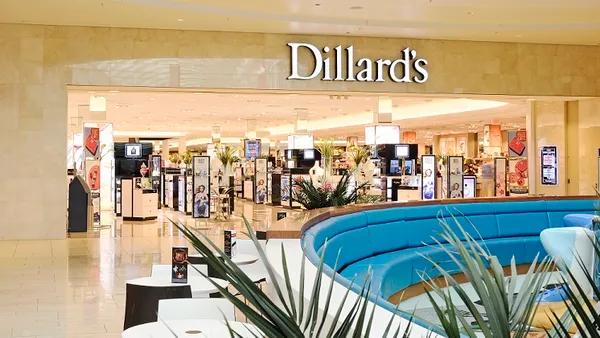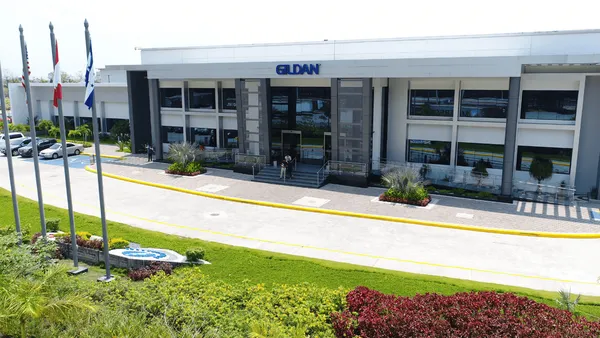Dive Brief:
- Retail's merger and acquisition deal volume fell 19% between 2019 and 2018, with 465 deals total last year, according to a new report from PwC.
- In dollar terms, the total value of deals in 2019 fell 28% compared to the prior year, to $27.8 billion.
- The average deal size also fell, by 5%, to $252.3 million, according to PwC.
Dive Insight:
Going into 2019, the retail industry had buzzed with some headline-grabbing deals by major players, as well as quieter acquisitions meant to add capabilities and markets for players in transition.
In 2018, Walmart snapped up the Indian e-commerce player Flipkart — an acquisition that has caused a headache for the retail giant. Since Walmart paid $16 billion for the company, it has dragged on profits, and Walmart has reportedly fired some top executives and plans to reduce its presence in India.
That year also brought Walmart's acquisition of the digitally native plus-size brand Eloquii, continuing a streak of buzzy online brands that Walmart, in 2019, appeared to backtrack on with the sale of ModCloth (which Walmart acquired in 2017). Also in 2018, Amazon bought up online pharmacy company Pillpack and security startup Ring after its much-talked-about acquisition of Whole Foods the year before, Macy's bought the store experience specialist Story, and Nordstrom picked up two digital commerce tech startups.
Retailers, in other words, have sought scale, tech and new competencies through acquisitions. Sometimes they got what they paid for, sometimes not.
The pace of change-through-mergers slowed in 2019. The firm attributed the "dwindling M&A activity" for the year overall in retail on a host of factors, including e-commerce disruption, growing competition from resale and rental, difficulties in keeping physical retail relevant, the challenges in managing inventory and merchandise flow, rising labor costs and trade disputes.
And the already relatively sluggish deal pace in 2019 would have yet been lower if not for the fourth quarter, which saw a spike in M&A activity and accounted for 67% of retail investments for the year, according to PwC. Q4 hit the highest number in quarterly value since Q2 of 2018, PwC said.
The average deal size also got a 220% boost in the back half of the year from the Tiffany-LVMH "megadeal." At $16.2 billion, that deal accounted for 58% of all retail deals in 2019.
Looking ahead, PwC expects M&A activity to increase in the consumer space among companies looking to diversify their supply chains and related technologies.













